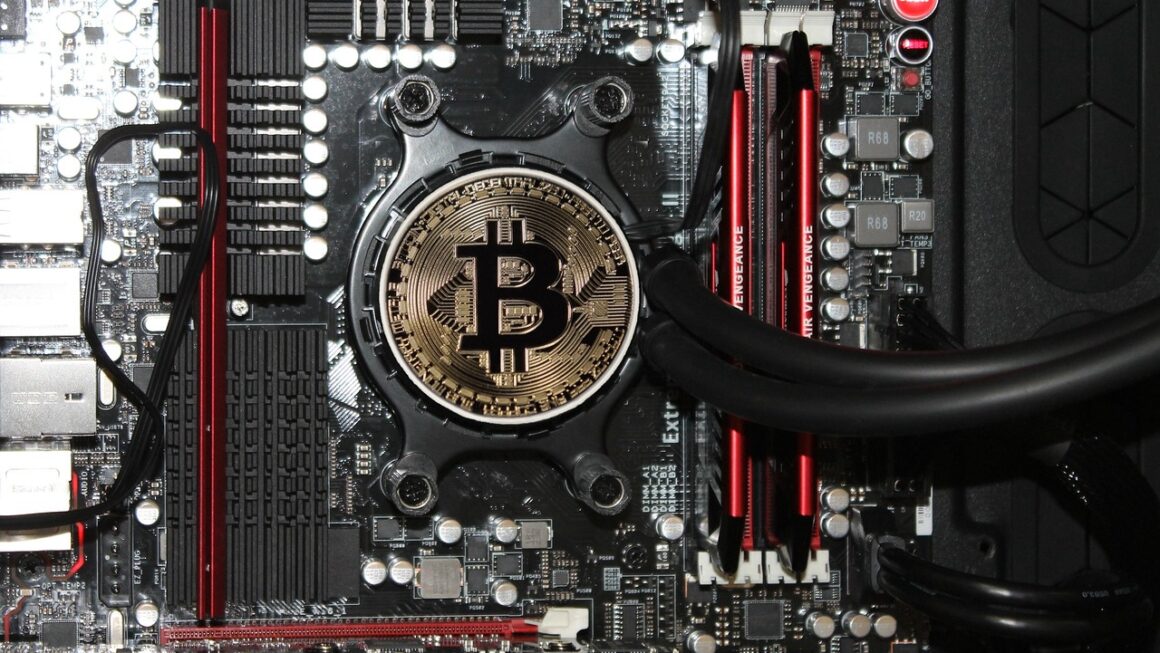Zero-knowledge rollups (zk-rollups) are rapidly gaining traction as a powerful layer-2 scaling solution for Ethereum and other blockchains. By bundling multiple transactions into a single batch and processing them off-chain, zk-rollups drastically reduce transaction costs and increase throughput without compromising security. This makes them a crucial technology for bringing decentralized applications (dApps) to a wider audience and fostering mass adoption of blockchain technology. This blog post provides a detailed overview of zk-rollups, exploring their underlying mechanisms, benefits, challenges, and future potential.
Understanding Layer-2 Scaling Solutions
The Need for Scaling
Blockchains like Ethereum face significant scalability challenges. Every transaction requires computation and storage, which can lead to network congestion, slow transaction speeds, and high gas fees, especially during periods of high demand. These limitations hinder the widespread adoption of dApps and make them less accessible to users.
Layer-1 vs. Layer-2 Solutions
To address these challenges, various scaling solutions have emerged. These can be broadly categorized into:
- Layer-1 solutions: Involve modifying the underlying blockchain protocol itself. Examples include increasing block size or implementing sharding. These changes can be complex and require broad consensus from the network.
- Layer-2 solutions: Operate on top of the existing blockchain, without changing the base layer. They offload transaction processing to a separate layer and then periodically commit the results to the main chain. Layer-2 solutions are generally easier to implement and less disruptive than layer-1 changes.
Zk-rollups: A Powerful Layer-2 Approach
Zk-rollups are a type of layer-2 scaling solution that uses zero-knowledge proofs (ZKPs) to bundle multiple transactions into a single batch and process them off-chain. This significantly reduces the amount of data and computation required on the main chain, leading to higher throughput and lower gas fees. Unlike optimistic rollups, zk-rollups provide immediate finality, meaning transactions are confirmed instantly.
How Zk-rollups Work
Off-chain Computation and State Storage
Zk-rollups perform the bulk of transaction processing off-chain. This includes:
- Transaction aggregation: Multiple transactions are bundled together into a single batch.
- State transitions: The rollup operator updates the state of the rollup based on the transactions in the batch. This state is stored off-chain.
- Zero-knowledge proof generation: A ZKP, specifically a succinct non-interactive argument of knowledge (SNARK) or a zero-knowledge succinct non-interactive argument of knowledge (zk-SNARK), is generated. This proof cryptographically verifies that the state transitions were performed correctly, without revealing the details of the transactions.
On-chain Verification and Data Availability
While computation is performed off-chain, zk-rollups rely on the main chain for data availability and verification:
- State commitment: The rollup operator posts a commitment to the new state root to the main chain, along with the ZKP.
- Proof verification: The Ethereum smart contract verifies the ZKP, ensuring that the state transition was valid. If the proof is valid, the contract accepts the new state root.
- Data availability: The transaction data itself (or a compressed version of it) is also posted to the main chain, ensuring that anyone can reconstruct the state of the rollup if necessary. This prevents the rollup operator from withholding data and censoring transactions.
Example: Simple zk-rollup Transfer
Benefits of Zk-rollups
Scalability and Throughput
Zk-rollups dramatically increase transaction throughput by processing transactions off-chain and only posting concise proofs to the main chain. This significantly reduces the burden on the Ethereum network.
Reduced Gas Fees
By batching multiple transactions into a single proof, zk-rollups share the cost of on-chain verification across many users, resulting in significantly lower gas fees for individual transactions. This makes dApps more affordable and accessible to a wider audience.
Security
Zk-rollups inherit the security of the underlying Ethereum blockchain. The ZKPs cryptographically guarantee the validity of off-chain computations, preventing fraud and ensuring that state transitions are performed correctly. This is often considered to be the most secure form of Layer-2 scaling.
Immediate Finality
Unlike optimistic rollups, which have a challenge period where transactions can be disputed, zk-rollups provide immediate finality. Once the ZKP is verified on-chain, the transaction is considered confirmed, eliminating the risk of rollbacks.
Practical Example: zkSync
zkSync is a prominent zk-rollup implementation that focuses on general-purpose smart contract execution. It allows users to deposit ETH and ERC-20 tokens into the rollup and then transact with each other at significantly lower fees than on the Ethereum main chain. zkSync Era, the latest version, supports a virtual machine compatible with Ethereum’s EVM, allowing developers to easily migrate their existing dApps.
Challenges and Considerations
Computational Complexity
Generating ZKPs is computationally intensive, requiring specialized hardware and expertise. This can increase the complexity and cost of running a zk-rollup. Advances in ZKP technology are constantly working to mitigate this.
Development Complexity
Developing dApps for zk-rollups can be more complex than developing for the Ethereum main chain. Developers need to understand the nuances of ZKP technology and the specific architecture of the rollup. However, tools and libraries are becoming more readily available to simplify this process.
Capital Requirements
Running a zk-rollup can require significant capital, especially for operators responsible for generating ZKPs and maintaining the off-chain infrastructure.
Data Availability Costs
While zk-rollups post compressed transaction data to the main chain, this still contributes to on-chain costs. Alternatives like Validium, which use external data availability committees, exist but come with different trust assumptions.
Future of Zk-rollups
Enhanced Smart Contract Support
Future iterations of zk-rollups will focus on improving support for general-purpose smart contracts. This will allow developers to build more complex dApps on zk-rollups, including DeFi protocols, NFTs, and gaming applications. Projects are actively working on making zkVMs equivalent and superior to EVMs.
Hybrid Approaches
Combining zk-rollups with other scaling solutions, such as sharding or optimistic rollups, could offer even greater scalability and efficiency. Hybrid approaches can leverage the strengths of each technology to create a more robust and versatile scaling solution.
Widespread Adoption
As ZKP technology matures and the ecosystem of tools and libraries expands, zk-rollups are poised for widespread adoption. They have the potential to significantly improve the user experience of dApps and make blockchain technology more accessible to a wider audience. The increased transaction speeds and reduced gas fees will enable new use cases and drive the growth of the decentralized web.
Conclusion
Zk-rollups represent a significant advancement in layer-2 scaling solutions, offering a compelling combination of scalability, security, and immediate finality. While challenges remain in terms of computational complexity and development, the benefits of zk-rollups are undeniable. As the technology matures and the ecosystem develops, zk-rollups are expected to play a crucial role in scaling Ethereum and other blockchains, paving the way for mass adoption of decentralized applications. Keep an eye on this space as it continues to evolve and shape the future of blockchain technology.
Read our previous article: Unlocking Predictive Power: Big Datas Edge In Forecasting




